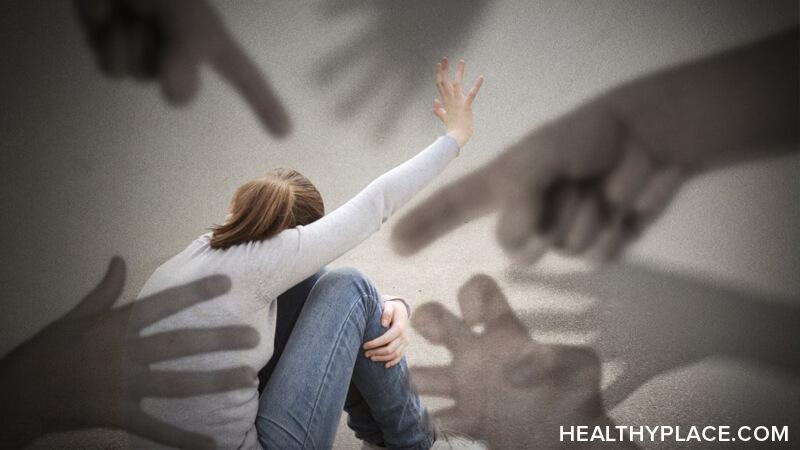Mental Health Crises Are Not Spectacles

Mental health crises can happen anywhere at any moment, such as in a public place. Time and time again, I've seen those public moments captured in photos and videos online, turning a moment of pain into a show that people seem to feel entitled to gawk at and criticize. This needs to stop because mental health crises are not spectacles. Making them into such is stigmatizing and potentially harmful to the individual struggling.
How Mental Health Crises Are Made into Spectacles and Why They Shouldn't Be
This happened recently in my community (unfortunately, it's not the first time). A person had climbed to the top of a vertical-lift bridge in a state of crisis. While there were those advising others to steer clear and allow emergency responders to help this person, there were others who flocked to the scene. The news article about the incident cited that hundreds of people crowded around,1 and I saw posts on social media noting there were pictures and videos of the scene shared online. Some posts said there were people taking their children to the scene and taking photos with them. It was rumored that people were coordinating where they could park to get a view of the scene or be within walking distance.
It all made me feel incredibly disappointed by people, disgusted even. It also raises the question: what purpose does any of that serve?
Again, mental health crises are not spectacles, and they shouldn't be made into them. This is not a performance for you to watch. This is not fiction on a streaming service. It's someone's life and someone's pain.
I know if I were in that position, I surely wouldn't want my distressed situation to become a show for the masses. It is not helpful, could impede first responders, and will likely have a largely negative impact on the situation overall. I can only imagine the feeling afterward of feeling like your darkest moment was under the magnifying glass and the ripple effect that could have on mental health from there on out.
I see this as being a product of mental health stigma. Those going to watch don't seem to understand the severity of mental health struggles, or they almost seem to dissociate themselves from it being a real-life in the mix. It's just a performance for them to observe so they can tell others later that they were there. Then there are those who say the person was only doing it for attention. I saw one commenter say that if the person didn't want attention, then the person shouldn't have done what she did. As if it were that simple ("Breaking Down the Stigma of Attention-Seeking Behavior").
3 Tips to Stop a Mental Health Crisis from Becoming a Spectacle
I recently wrote about the ways we're making some progress combatting mental health stigma, but this kind of situation is a glaring representation of how bad things still are. In light of that, here is a video with tips for stopping someone's mental health crisis from becoming a spectacle.
If you feel that you may hurt yourself or someone else, call 9-1-1 immediately.
For more information on suicide, see our suicide information, resources and support section. For additional mental health help, please see our mental health hotline numbers and referral information section.
Source
- The Welland Tribune, "Police Negotiator Talks Woman in Distress Down from Main Street Bridge Tower in Welland." September 13, 2020.
APA Reference
Barton, L.
(2020, September 24). Mental Health Crises Are Not Spectacles, HealthyPlace. Retrieved
on 2025, December 8 from https://www.healthyplace.com/blogs/survivingmentalhealthstigma/2020/9/mental-health-crises-are-not-spectacles
